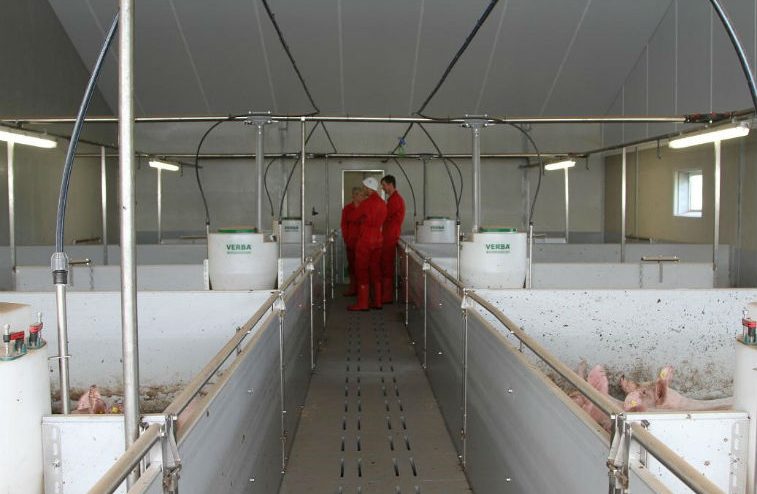
“HyCare contributes positively to Public Health,” says Arjan Wermink, HyCare coach at MS Schippers. “It’s all about hygiene and acidifying drinking water with a good approach on the zoonosis Salmonella in pigs. ”
Contamination with the Salmonella bacterium occurs on virtually every pig farm. However, practical tests show that weaned piglets are protected in a HyCare environment, remaining free of Salmonella. Blood samples have indicated that HyCare piglets tested negative for Salmonella for three consecutive trimesters, six weeks after being weaned.
For piglets from the same litter, that were then raised in a traditional rearing department, blood levels increased considerably and went over the critical boundary. “That proves that Salmonella continues to circulate among these standard piglets,” says Arjan.
The fact that Salmonella remains immune to the HyCare fattener pigs continues. All manure samples from pigs with an age of 16 weeks in a HyCare barn tested negative for Salmonella. In the manure samples of fattening pigs from the traditional stable however, large numbers of Salmonella germs have been detected.
In order to perform additional testing on the unprecedented results of the HyCare pigs, special shoes were used to walk through the HyCare stall as well. Samples were collected from the central corridor and the pens of piglets, young fatteners and older fatteners. All the shoe samples scored negative for Salmonella.
“This proves that pig farms with a HyCare approach can become and can stay less contaminated with germs. “Arjan emphasizes. “Floors in HyCare stalls are coated so that they can be thoroughly cleaned and disinfected with the right products. An adequate fly control and the continuous treatment of drinking water is also beneficial, but in the end the pig farmer must do it and must do it consistently. We are happy to coach them there.”